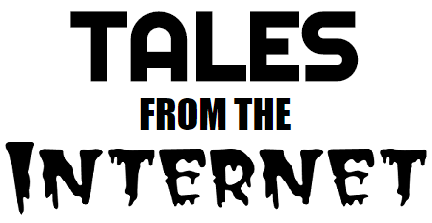My First Week Out Of Medical School
My first week of my intern year (year one outside of medical school, when you’re on call overnight and all that, AKA “Season One of Scrubs”), everyone “signs out” their team’s patients to the doctor on call overnight. So that doctor (intern, with an upper-level resident also present overnight to supervise) is covering many patients they hardly know, maybe 60 or more. The situation was that a patient with dementia, unable to really communicate with people and clearly ‘not there’ but conscious, arrived from a nursing home with I think some agitation as the original complaint.
Basic labs ordered in the ER show the kidney function is worse than usual, which could be due to many things, but what really MUST be distinguished is between ‘not enough blood pumped forward to the kidneys and rest of the body’ (e.g. heart is failing and it’s backing up into the lungs) VS ‘not enough liquid in the blood TO flow’ (e.g. due to vomiting a lot or something). This is critical to distinguish because for the first you give medicine to make them pee out the extra liquid, and in the second you give more fluid. Either treatment for the opposite problem is catastrophic. Fortunately it’s usually easy to distinguish ‘wet’ from ‘dry’, based on listening to heart and lungs, chest x-ray (is there ‘congestion’ evidence?), blood pressure and heart rate (tend to drop BP and raise heart rate upon going from laying down to standing positions if you’re too ‘dry’), looking at neck veins while sitting up at an angle (they bulge if too ‘wet’), and so on. This patient was unable to cooperate with exam, answer questions, and the X-ray was sort of borderline (unchanged from the last x-ray maybe several weeks ago). My resident instructed me to sign out the patient with instructions to continue a 500mL saline inflow, then re-assess to see whether the patient looked more ‘wet’ or less ‘dry’. I signed this out, and forgot to make the order to stop the saline after 500mL, so it ended up running slowly in all night. The intern on call (also first week as doctor) forgot to re-assess at all or shut off the saline if it had been noticed because so busy with new admissions. We’d also ordered 3 sets of ‘heart enzymes’ meant to diagnose a heart attack, one reason for a patient suddenly getting ‘wet’ (i.e. heart pump failure), since the EKG was not interpretable (had a pacemaker which makes it impossible to tell). Lab fucked up too, because hospital policy was that if the first set of ‘heart enzymes’ was negative, apparently the 2nd and 3rd sets, each traditionally spaced 6-8hrs later to catch a heart attack if it starts to evolve and become detectable by blood test, were both cancelled.
I came in and first thing in the morning checked on this patient, who was screaming things nobody could understand and the nurses had chalked up to dementia and agitation. I checked the labs and saw the second and third heart enzymes hadn’t been done. I went to the bedside and saw the IV fluids still running. I immediately ran to the overnight intern, who said things had been so busy and nobody had called to notify that things were wrong. We stopped the fluids, immediately got a heart enzyme test, learned this patient was by now having a massive heart attack made much worse by the addition of IV fluids all night to this frail failing pump. I can’t get the screams out of my head, and cried a lot and was pretty depressed for a few weeks at least after this. The patient died because the status ended up being decided as not to resuscitate based on what the nursing home had on file, although no family members were known at all. This patient was totally alone, and spent the last night of their life in physician-induced agony. But I acknowledge the failure of two interns, the nurses, and the lab. Ultimately the blame fell on the lab and I think someone was fired, but I made clear to everyone that I felt to blame and wanted quality improvements made to prevent future errors, or at least catch them early if they happen. That’s I think the best you can do when you make a mistake.
There’s a Scrubs episode where as I recall at the end there’s a brief scene where the ghosts of dead patients representing medical errors follow around the physicians like little trains. It’s very poignant, but I can’t find the clip. That’s what it’s like though.
